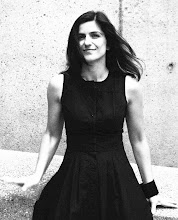bz @ACSA 104
My paper on experimental exhibitions as part of architectural pedagogy was accepted for presentation at ACSA 104: Shaping New Knowledges, as part of the Knowledge in the Public Interest panel.
Title: Exhibition as a Pedagogical Tool for Experimental and Public Architecture
Abstract:
Borrowing his father’s metaphor, Pedro Gadanho characterizes the architectural profession as “cannibalistic,” being destroyed from within: a system of consumption in which young unpaid interns grow to either hate or replicate it. This dichotomy is by no means foreign to current educational systems of architecture, which not only reinforce this cannibalism, but also further divide the community. In an era where mainly growing bottom-line profits are the focus of universal corporate cultures, being creative and experimental is less affordable, and also there is a lack of equal opportunities for all. Architecture, both in practice and education terms, remains competitive and very much attached to the rich-client/genius-architect couple. This essay presents a pedagogical model that critiques and challenges this enterprise by taking a different approach that allows and reinforces creativity and experimentation for students, while equipping them to become emergent professionals with skills to envision and produce a more social and more public architecture that integrates larger concerns. This pedagogical model borrows from art, exhibitions, installations, and participatory practices, and philosophical concepts and theories such as those of laboratories, atmospheres, and emancipation. The essay critically examines two experimental exhibitions that came out of Thesis Lab course and this pedagogy: Neoplayformz, a time-based exhibition of collective acts and experiences, that offered an alternative format to the intimidating architectural review; and Thesis Lab 2014 exhibition/publication, a documentation of the experimentation with full-scale installations, immersive experiences, and provocative interventions, towards the exploration of a more civic-minded architecture. Beyond exhibitions, these venues used publications, blogs, social media, and other participatory platforms to broadcast the new ideas and to engage the multiple publics in the process, production, and criticism. They sought new formats for a non-“cannibalistic” architectural practice, which is beyond the model of service and clients, and allows collaboration without eliminating the individual voice. Participants explored collective non-hierarchical groups or actions that may offer to individual creators the opportunity to instigate a series of interventions: the design and production of their own architectures that improve their surroundings and environments.
Friday March 18, 2016, 11-12:30pm
Title: Exhibition as a Pedagogical Tool for Experimental and Public Architecture
Abstract:
Borrowing his father’s metaphor, Pedro Gadanho characterizes the architectural profession as “cannibalistic,” being destroyed from within: a system of consumption in which young unpaid interns grow to either hate or replicate it. This dichotomy is by no means foreign to current educational systems of architecture, which not only reinforce this cannibalism, but also further divide the community. In an era where mainly growing bottom-line profits are the focus of universal corporate cultures, being creative and experimental is less affordable, and also there is a lack of equal opportunities for all. Architecture, both in practice and education terms, remains competitive and very much attached to the rich-client/genius-architect couple. This essay presents a pedagogical model that critiques and challenges this enterprise by taking a different approach that allows and reinforces creativity and experimentation for students, while equipping them to become emergent professionals with skills to envision and produce a more social and more public architecture that integrates larger concerns. This pedagogical model borrows from art, exhibitions, installations, and participatory practices, and philosophical concepts and theories such as those of laboratories, atmospheres, and emancipation. The essay critically examines two experimental exhibitions that came out of Thesis Lab course and this pedagogy: Neoplayformz, a time-based exhibition of collective acts and experiences, that offered an alternative format to the intimidating architectural review; and Thesis Lab 2014 exhibition/publication, a documentation of the experimentation with full-scale installations, immersive experiences, and provocative interventions, towards the exploration of a more civic-minded architecture. Beyond exhibitions, these venues used publications, blogs, social media, and other participatory platforms to broadcast the new ideas and to engage the multiple publics in the process, production, and criticism. They sought new formats for a non-“cannibalistic” architectural practice, which is beyond the model of service and clients, and allows collaboration without eliminating the individual voice. Participants explored collective non-hierarchical groups or actions that may offer to individual creators the opportunity to instigate a series of interventions: the design and production of their own architectures that improve their surroundings and environments.
Friday March 18, 2016, 11-12:30pm
Labels: lectures




1 Comments:
:*
Post a Comment
<< Home